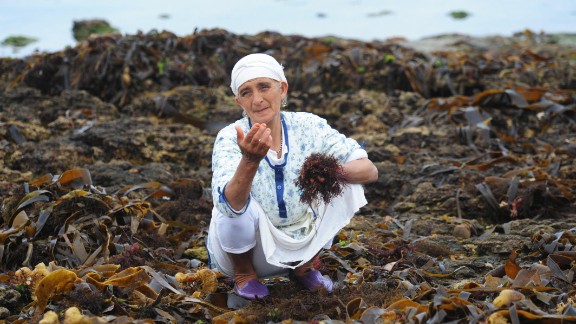Cleaning Hands and Terms of Trade
Empowering African Farmers: J-Palm’s Transformative Grant
This title highlights the impact of the $250K USADF grant on empowering smallholder oil palm farmers in Liberia and the positive economic development, which is valuable for search engine optimization.
African Resource Processing: Combating Exploitation
Africa certainly needs investments, but it also needs self-management and processing of its resources from raw to final products. Emphasizing efforts to combat the historical exploitation of African resources and promote local processing.

Investment in integration upstream and downstream
The journey from palm oil, coffee beans, and cacao farm to a Soap Bar, Coffee Cup, and Chocolate Bar involves intermediaries, making transparency difficult.
The exploitation of natural resources from Africa has a long history, and it extends beyond agricultural products, it includes mining and other natural and human resources.
During colonial times, European powers exploited Africa’s resources, including cacao, rubber, and minerals. The legacy of this exploitation still affects African economies today. The terms of trade have often favored industrialized nations over African producers.
$250K USADF grant and a bar of soap $24.99 – the Price for Pacha and can be only afforded by Pacha the rest of the “dirty hands”, get Palmolive for $99 at 99 Cents Store.

This reminds me of the story of the price of a Starbucks coffee cup sold in New York and the price of Coffee Beans bought by Starbucks in Ethiopia, with the difference between the two in cost, is just Hot water added at the end.
Starbucks is the largest coffee chain worldwide, bringing in annual revenue of $32.3 billion (2022). This revenue has increased to $35 billion as of June 2023.
Starbucks Retail Prices:
- When it comes to purchasing coffee beans from Starbucks, there is something for everyone.
- Prices vary depending on the type of bean and packaging:
- A one-pound bag of Ethiopia coffee retails for $13.95 U.S. [Listed in Starbucks website on 6/3/2024]
- One-pound bags of ground coffee start at $9.95.
- Whole bean coffee starts at $11.95.
- Starbucks also offers organic and fair trade coffee for an additional premium4.
Given that Starbucks buys about 800 million pounds of coffee every year, or about 5 percent of the world’s coffee, Burns says, “the potential to positively impact the lives and livelihoods of farmers and their communities is tremendous.
The average cost range for a pound of ground coffee is $8-$20. The average pound of coffee can make roughly 24-46 cups of coffee. That’s an average of just 26 cents per cup! Jan 22, 2024
Yes, indeed, burning the price to less than US$ 0.62 per pound has a real impact on African farmers, of course.
Specific details about Starbucks’ purchase price per pound of coffee in Africa are not disclosed publicly.
Wholesale Price Ranges in South Africa:
In South Africa, the approximate wholesale price range for coffee (both beans and ground) varies:
- For coffee beans: Between US$ 1.37 and US$ 1.37 per kilogram (approximately US$ 0.62 per pound)2.
- For coffee (including ground coffee): Between US$ 7.60 and US$ 9.67 per kilogram (approximately US$ 3.45 to US$ 4.39 per pound)3.
The disparity between the price of a Starbucks coffee cup in New York and the cost of coffee beans purchased by Starbucks in Ethiopia is a thought-provoking example of value chains and economic dynamics.
All the fuzz of marketing, branding, and other value addition, labor and overhead, packaging, and presentation that Starbucks claims as additional expenses are inclusive and intrinsic to any business operations of the same kind in a competitive environment or not.
While Ethiopia’s Challenge is faced with a well-designed strategic offer of Low Profit for Farmers receiving a small share of the final retail price is exposed globally to supply, demand, and market speculation and has no control over the branding and marketing power that Starbucks enjoys.
This is not just coffee problem of equity, it is the same process of exploitation for other natural products and mineral resources extracted from Africa, Cacao was another example before Africans understood the process of exploitation they were subject to and organized themselves which allowed them to decide by themselves to whom to sell and what conditions and terms they choose, including the pricing.
Like coffee, cacao (the raw material for chocolate) has faced similar challenges. African countries, particularly those in West Africa (such as Ivory Coast and Ghana), are major cacao producers.
However, for decades, the cacao industry has grappled with issues such as child labor, low prices paid to farmers, and lack of transparency in supply chains.
Many African cacao farmers have struggled to earn a fair income despite their essential role in producing chocolate.
Starbucks aims for profitability and Ethiopians aim for survival.
6/3/2024
J-Palm Liberia , led by the amazing Mahmud Johnson works to empower smallholder oil palm processors in rural Liberian communities by installing mini-mills in villages, to reduce processing time by 90% and improve palm oil yield by 50-100%.
With the support of a $250K USADF grant, J-Palm expanded its operations, constructing 20 additional palm oil processing sites, and expanding from five villages and 500 farmers to now serve more than 5000 smallholder oil palm farmers in 51 villages. 📈
This has transformed J-Palm’s operations, attracting additional financing and opportunities, including a partnership with Pacha Soap Co., a US-based manufacturer of all-natural soaps. You can now find Pacha Soap bars in Whole Foods Market stores across the U.S., made with J-Palm’s wild harvest palm kernel oil in the soap base! This is further supporting J-Palm’s ability to increase incomes for smallholder farmers and reach more communities in Liberia! 🇱🇷
#US #Africa #Liberia #Partnership #Agriculture #EconomicDevelopment
